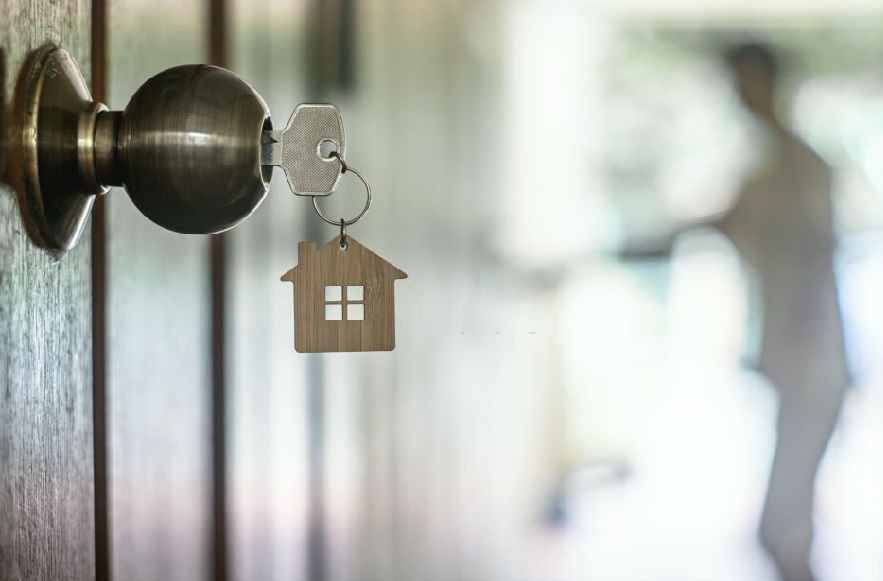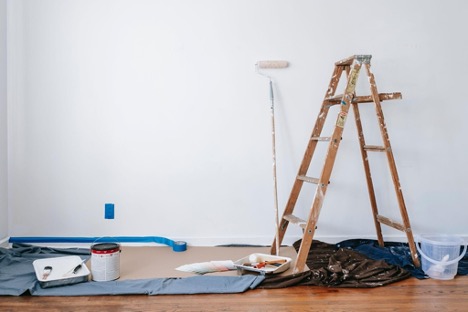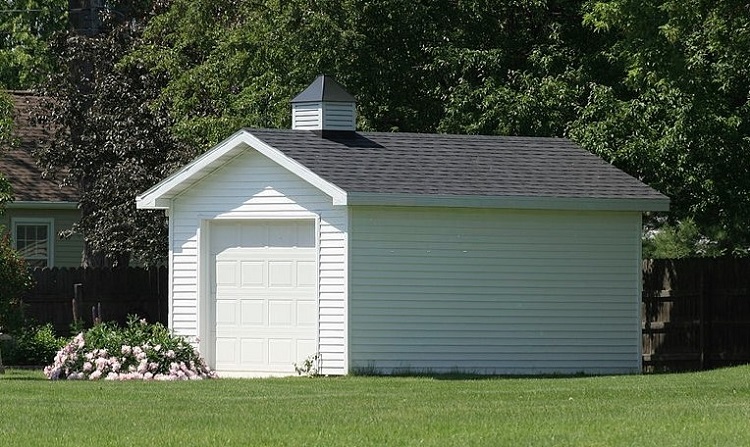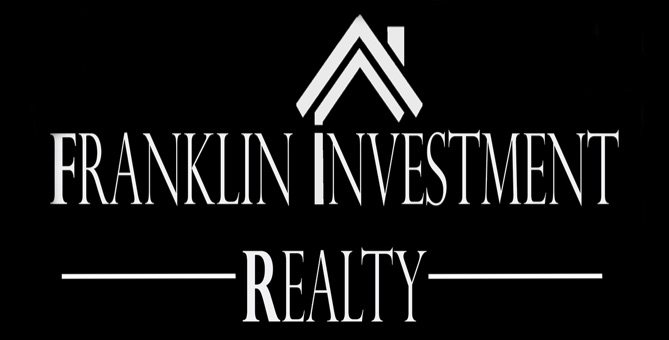Top Projects To Revive Your Home

You can do many things to breathe new life into your home. Some projects you can tackle DIY, while others require the help of a reliable contractor. When reviving or refreshing your home, keep in mind that the end goal is to have a healthier space that promotes wellness for the entire family. Here are some suggestions on how to liven up your home. Value-Increasing Projects Your renovation considerations may differ if you plan to sell or rent out versus staying in your home. Renters may expect different amenities than homeowners. For example, updated lighting, fresh paint, and technology, among other things, can attract tenants to your rental property. Kitchen and Bath Some kitchen and bathroom projects add value because people spend a lot of time in these spaces, and everyone appreciates an up-to-date kitchen and a spa-like bath experience. However, refreshing these areas doesn’t have to cost a fortune. Simple changes, such as adding backsplash tile in your kitchen or updating lighting, add value and transform the space. And if you want to add some color, there are plenty of peel & stick wallpaper options to choose from. Outdoors and Curb Appeal Many homeowners and tenants enjoy entertaining. Outdoor improvements, such as fire pits, decks, and fences, increase home value. A beautifully landscaped lawn provides curb appeal and reveals that you take pride in your property. You may want to consider new landscape design, but before contacting a contractor to obtain a quote, read reviews online to ensure your contractor is qualified. In addition, you may find some who are offering money-saving promotions. Basement Consider unused space when thinking about a renovation project because usable square footage adds value to your home. Value-adding remodeling projects include adding a home gym or yoga space in your basement. Alternatively, families and those who entertain may appreciate an entertainment center. After a stressful day, a soothing meditation room may be just what you or other family members need to help you unwind. Organizational Ideas A chaotic environment is stress-inducing. Living in organized spaces helps relieve anxiety and promotes wellness. You can complete many home organization projects inexpensively with minimal supplies and a well-executed plan. Even children can appreciate organized areas where they can find their favorite toys easily. Picking up toys and putting them in their proper places can become a bonding experience for you and your child. Tips for Your Renovation Several of these changes can be DIY projects, but if your project involves plumbing or electricity, it’s best to hire a qualified contractor due to safety issues. Also, contractors normally provide a warranty for their work and relieve the stress of doing the work yourself. The cost of renovating your basement or other areas depends on your location, the materials you choose, and the complexity of your project. If you choose to add carpeting in your basement, remember to add subflooring because carpeting is prone to mold. Be sure to take before and after photos of any project and keep copies of all receipts for materials and labor. Family and Projects Revive and refresh your home by choosing projects that promote family wellness. Simple projects in which the entire family can participate, such as adding wallpaper, encourage family bonding while providing them with a healthier, more organized, and usable space. Franklin Investment Realty agents will provide the information necessary to make the home buying process as easy and efficient as possible. Our agents specialize in the Greater Philadelphia real estate market and have years of experience within the region. Call us today! – Rhonda Underhill
Should You Rent Or Buy?

Deciding to rent or buy a home is a major financial decision. It affects almost every aspect of your life. So, how do you know which option is the best one for your situation? There are advantages and disadvantages to both renting and buying. Purchasing a home involves several steps that include getting approved for a loan. You also have to come up with a down payment. Renting is easier. It is also more affordable, but do you want to forego owning property? If you are having trouble deciding, here’s what you want to consider before signing a rental or mortgage agreement. Do You Want The Same Address for Several Years? Do you want to become part of a community or have the flexibility of changing addresses every year or so? The answer to this question can help you decide if renting or buying is the right option. Most buyers plan on staying in the home for at least five years. It gives you time to settle into the neighborhood and make the house your home. You can sell a newly purchased home after a year or two, but you can end up losing money on closing and moving costs. Compare Average Home and Rental Prices It’s a good idea to compare the costs associated with renting versus buying. Initially, renting is often the more cost-effective option. You don’t have to pay closing costs, come up with an adequate down payment, and have cash set aside for home maintenance. Home repairs can also quickly add up, depending on the property’s condition. Most rental contracts only require a security deposit, along with the first and last month’s rent. Home buying is more expensive in the beginning, but over time it is more cost-effective than renting. Your mortgage payments are usually lower than monthly rent payments. You also have the option of refinancing. It does extend your mortgage terms, but you are paying a little less each month. Renters can only expect their costs to increase, sometimes by 5% or higher. Homeowners receive tax breaks not available to renters. Don’t forget about property value. Most home values increase over the years, putting extra equity in your pocket. Consider Your Current Lifestyle Homeownership doesn’t fit every lifestyle. Frequent travelers, either for work or pleasure, may want to focus on finding a rental property. Someone else handles the upkeep, maintenance, and repairs, leaving you free to see the world without worries. Anyone expecting a promotion to a position in another city may also want to hold off on buying a home. You aren’t going to have enough time to build up any equity in the property. You may also have to take a lower asking price if your move is within a few weeks or days. Renters may lose their security deposit for an early move, but it’s less of a financial hit than you get as a homeowner. Take a Look at Your Finances Before you make any decisions, take a look at your finances. Add up the costs associated with buying versus renting and see what you can comfortably afford. A common mistake homebuyers make is buying a house they can’t afford. It’s nice to have some extra space, but the problems come when you realize the mortgage payments are higher than you expected. Ideally, you want your down payment to be around 20% of the home’s selling price. You also want to have enough cash leftover for maintenance and repairs. Your finances also determine what improvements you can make on the property. For example, if the property is in an area where storms are common you may want to add a portable power generator to keep the lights on. Renters have the advantage of relying on their landlord or property manager to take care of these improvements. If you are not comfortable with these and other costs associated with owning a home, renting may be a good option for the present time. Ready to start looking for a new home, contact Franklin Investment Realty today to see how we can help make homeownership a reality. – Karl Kennedy
Want to Upgrade a Fixer-Upper?

Want to Upgrade a Fixer-Upper? Know How to Proceed to Get the Most Profit Purchasing a home in the Greater Philadelphia area, renovating it, and then flipping or renting it can be a profitable investment. However, you should know a few tips, or you could find yourself losing money. Franklin Investment Realty will be there to guide you through the process and here are a few tips below. Consider a Real Estate Owned Property A real estate-owned property is one taken by a lender due to failure to pay. You can find listings for REOs in Philadelphia and the general vicinity on a real estate listing site, such as realtor.com. You can also check for listings through an auctioneer or on a bank or government site. Typically, an REO property is less expensive than a standard listing. Be cautious as you look for REO properties, though, because some may need significant repairs. Take into account the location and the nearby amenities. These play a major role as to whether the home will sell or entice renters. Additionally, get an appraisal to determine the listing price compared to the actual value. Rent or Sell Carefully weigh the pros and cons of renting or selling. Keep in mind that you’ll be responsible for the yearly taxes, even if you have periods when the home is vacant, if you rent. You’ll also need to maintain the house and make repairs as necessary. If you sell the home, you’ll only need to worry about paying taxes once. In addition, you may need to make certain repairs before closing if you sell. As a general rule, a home that you sell is held to higher standards than one you rent. Therefore, if the house needs significant repairs after the renovation, it may be in your best interest to rent the home. You should also take into consideration the housing market. If the current conditions are in the buyer’s favor, you may want to rent first and sell when it’s a seller’s market. When marketing the house, be sure to list it widely online with good photography. Use the best online image size converter to guarantee that your images look their best on each website. You can also use social media to publicize your listing. Know Your Responsibilities and the Law Know what you’re responsible for first before renting a home. Firstly, and possibly most importantly, you’ll need to comply with Pennsylvania laws. For instance, you must take care of major repairs, such as a broken toilet or heater. If you don’t keep the property up to code, a tenant may have a legal reason to withhold rent. You’ll need a written lease or rental agreement. The agreement should include information, such as the rent price and when it’s due. You may want to hire legal assistance to ensure you’re in adherence to Pennsylvania laws. Think About Hiring a Property Manager A property manager handles maintenance and repair. Hiring one may be especially important if you don’t live in the Philadelphia area since every time something needs to be repaired or maintained, you’d need to be there, possibly outside business hours. It’s also beneficial if you’re busy or unfamiliar with home repair. You can find local options online. Make sure you read reviews first as you compare. You’ll want to check for licensure and certifications. Turn That Fixer-Upper Into Profit Ensure your investment is profitable by making a sound decision regarding renting or selling. It’s also essential to understand the law and hire assistance when needed. – Rhonda Underhill
Guide to Philadelphia Investment Property

Guide to Buying Rental Property In Philadelphia Millennials, people between the ages of 23 and 38, have surpassed Baby Boomers as the nation’s largest adult generation. But they still trail the Boomers when it comes to being heads of households. But the strange thing is, millennial households dominate the home rental market. Because our largest adult generation would rather rent their home than own it, the real estate market is ripe for people looking to invest in income properties. America’s Favorite Long-Term Investment The popularity of real estate is near an all-time high. Low interest rates and the millennial generation’s desire to rent rather than own is increasing the demand for rental real estate. Is it time to get into the landlord business? Owning a piece of rental property can be a great investment when it is approached with a long-term outlook. Someone else pays down your mortgage, you keep the rent that exceeds the mortgage payment, and hopefully the home’s value increases over time. Financing Can Deliver Better Returns Some people think that if you are going to buy an income property it should be done with all cash. That way the entire rent check goes into your pocket. As an example, an investment of $100,000, the price of the home, may return $12,000 per year ($1,000 per month x 12), or 12%. However if you bought the same house using leverage, with only 20% down ($20,000), after interest charges your return on investment (ROI) could be over 25%. Where To Look: Location, Location, Location Everyone thinks they need to purchase a rental property where the monthly rents are the highest in a neighborhood where the buyer would want to live. That is not necessarily true. The people who gain the most from owning rental property are the ones that buy in areas with the greatest potential for appreciation. Remember we need to be thinking long-term. House appreciation will almost always surpass the money earned from growth in rents. This is where working with a knowledgeable realtor comes into play. They know where the desirable areas are that offer the greatest potential appreciation. Down The Road Owning a few paid off rental properties can really add to your Social Security check when you are ready to enter into retirement. You won’t have to “cut back” your lifestyle in retirement. You will be able to take more vacations, drive a nice car, and do the things that you have always wanted to do. Those things may be volunteering your time or spending more time with the grandchildren. If golf is your thing, you could visit and play some of the notable courses around the country, or even better, buy a golf simulator and play those courses on your projector without ever leaving your house. In The End You could invest in the stock market, but try going out to a company you’ve invested in and tell them you would like to tour the facility or look at the books. Fat chance of that ever happening! With an income property you are in control and you can drive by or enter it almost anytime you want. Owning income property can be an excellent investment. Approach it like a business and it can generate a substantial passive monthly income. Just realize that an income property is not an instant cash cow, it is a long-term investment. And in real estate, you make your real money when you buy, not when you sell. So spend some time with a Franklin Investment Realty agent that knows the market and can guide you to the better areas in and around Philadelphia to invest in. – Karl Kennedy
Steps for Buying Your First Investment Property

Buying your first investment property comes with great excitement. However, it can also be scary, as you are unfamiliar with the territory of owning an investment property. There are many options and different factors that can influence your decision. While it may feel overwhelming at first, it’s easy to buy your first property if you follow the right steps. The key is knowing the reason you’re investing in real estate, your goals, and the obstacles that may be in your way. To get started with your real estate investing journey, here are the must-follow steps, presented below by the real estate professionals at Franklin Investment Realty. Get Pre-Qualified If you’re in the planning stages of buying a property, you should get pre-qualified for a mortgage. While this is not an official approval, it can help you raise the chance for financing. Pre-qualification tells you the things you need to get financing. For example, if your debts are too high, you can pay them off to boost your credit profile. Pre-qualification is an important step if you don’t have enough money to acquire the property without borrowing. Typically, a pre-qualification is good for about 90 days. However, when ready to buy the property, it’s recommended as it can speed things up when applying for a mortgage. Define Your Investment Strategy It’s crucial to approach real estate with a strategy; for instance, determine if you’re buying for the long-term or on a short-term basis. If you’re buying to hold, you need to consider things like maintaining the property, managing your investment, and ensuring you get the returns you expect. If you want the best results renting the property, you must consider a good location that is in high demand. Also, you can hire a property manager to help you with all that is required to keep your investment running smoothly. Look for Suitable Property After doing all the “leg work,” you need to find a suitable property. It’s easy to get the information you need without too much effort. Browse online here to see which properties are on the market. While doing the search, you don’t need to restrict yourself to a single geographic area. You can also explore outside your state. An easier option is to hire a buyer’s agent like Matt Scannapieco to assist in the search process. Due Diligence After locating the property you want to buy, it’s important to do due diligence. Home inspections are an important part of the buying process; after all, you need to know the property’s repair exposures to ensure you’re getting a reasonable deal. Talk to a contractor to know how much it would cost to fix any damages and plan for future improvements. There are different outdoor improvements you could do, including installing a new fence. There are many local fence companies you can contact for such a project. Ask for a quote for the project and also review the company’s performance by reading reviews online (sites like Angi allow you to read reviews from previous customers). The cost depends on the size of the fence and where you want to install it. All these costs should be a part of your calculation to decide if the property will give you a good return on investment. Create a Support Team Investing in real estate requires the collaboration of different people. You need eyes all over the place to create a successful portfolio. Your support team could include: An attorney An inspector A home contractor An appraiser A loan officer A real estate agent from Franklin Investment Realty These will work together to cover all angles and ensure your investment offers the best returns. You need someone to review the legality of documents, another to calculate the property’s value, and another to check the property’s soundness. You can also enlist the help of specialty services that can help you with specific tasks related to starting your business. For example, if you’re registering as an LLC, work with a company like ZenBusiness to ensure that all of your paperwork gets filed correctly with the state. Getting your first investment property is an important financial decision. You should consider a property that will appreciate in value and also give you cash flow. This is a good way to diversify and ensure you don’t put your eggs in one basket. These guidelines should help you understand where to begin so you can lay the foundation for success. – Rhonda Underhill
Renovating Your Floor? Consider these 5 Things First!

The flooring of your home plays a vital role in setting the tone for your interior. Whether it be a new home or renovation, flooring makes a significant impact on the overall design theme of any space. As the floor is the most exposed part of your interior and goes through regular wear and tear, the practicality and durability of the flooring material also has a crucial function. Such factors make selecting an appropriate flooring material a highly essential task. Consider These Things First! Before you get started with your floor renovation, here are a few things that you should keep in mind. Don’t Replace – Fix It! While completely getting rid of the damaged floors seems appealing, you should first try to replace the damaged areas without getting rid of the good parts. Besides helping you save time, money, and energy, this will also prove beneficial for the environment. For example, single floor tiles that are easy to replace and can be switched out without damaging neighboring tiles. You can also clean up and re-grout old tiles to breathe a new life in them. Explore All The Options First Several flooring options, like carpets, vinyl, tiles, etc., are available in the market. However, vinyl flooring has recorded a rise in demand due to its durability and the variety of available design options. Quick research will show you that materials like tiles and hardwood floors are more expensive options. The bottom line is that if you stay open-minded about the products and their varieties, you can discover many flooring options that you may not have even initially considered. Durability The durability of flooring material, often overlooked, is very important while installing floors. Vinyl, hardwood floors, laminates, and adequately installed tiles can prove durable options for your home. However, before installing your flooring, you have to consider the related features for durability, such as ensuring that the subfloor is smooth and flat. An uneven subfloor can negatively impact the durability of your flooring, with tiles laid on such surfaces often cracking or breaking easily. Resale Value Installing the correct type of flooring can enhance the resale value of your home. While hardwood floors have the most significant impact on the resale value, other flooring materials can also help increase it. Tiles also prove relevant tools here. If installed correctly and with a trendy aesthetic, tiles significantly increase the resale value besides contributing to your home’s functionality and visual appeal. 5 Simple Ways You Can Renovate Your Floors On A Budget Here are 5 material choices that you can use to enhance your home’s quality while remaining within the budget. Tile Tiles are one of the oldest, most popular, and most commonly used types of flooring. These are available in various materials, like ceramic, vitrified, porcelain, etc. They are also available in different finishes like glossy, super glossy, matte, and multiple sizes, shapes and patterned tiles as well. Tile is well-known as a fantastic flooring option for a variety of reasons. The first reason is because it is inexpensive. In addition, the tile is waterproof, which is ideal for areas such as kitchens and bathrooms. Concrete Concrete flooring, while slightly expensive, is an excellent flooring option. Highly functional, the flooring is super robust and suitable for various areas. It is primarily used for the basement, which often has water seeping through the floor or walls. However, similar to tiles, concrete is a cold-flooring option and fails to retain most of the heat. Hardwood floors You can never go wrong with wooden flooring. Pair it up with wood wall tiles, and you have a warm and inviting space waiting for you! All hardwood floors have unmatched beauty and go well with all decors. While these floors are a bit expensive, their durability makes up for it and makes them one of the best choices in the category. The only major drawback is they get damaged easily and require considerable maintenance. Laminate The usage of laminate flooring has increased exponentially over the past few years. Their ease of installation and low-cost material are the two main reasons for increased demand. However, the biggest drawback of this flooring is that if it gets damaged, the whole flooring needs to be replaced, which puts them on the costly side of the flooring spectrum. Vinyl Vinyl, an affordable flooring option, is apt for use in all the parts of your home. It replicates the look of stone or hardwood flooring and augments the visual of the house. However, vinyl can also be torn and dented easily, making it essential to take care of them. It is imperative to choose the correct flooring for your space, considering the aesthetic, durability and cost of the flooring in mind. What works for one room may not work for another. Thus, it is best to complete your own research before investing in a flooring option, as you are going in for a long-.term investment. – Isha Tandon Isha has worked within the architecture and interior design industry as a flooring consultant expert – specializing in tiles, stones, and terrazzo. She has worked with Orientbell Limited, a leading tile manufacturer in India, as a product development manager in the design team and has recently joined the marketing team as their digital content expert. Her experience comes in handy in understanding the audience as she creates value-driven functional & informational content for the readers. She creates lifestyle pieces that focus on interior design products, trends, and processes. She loves to travel to historic places with rich architecture.
2 DIY Ways to Refinish Hardwood Floors (Without Sanding)

Your property’s hardwood floors can take quite a beating. This may be due to tenant turnover (since they move furniture), usual wear and tear, or perhaps even because of pets. In any case, the once-sparkling hardwood flooring in your property may need a touch-up. In this post, we’ll be discussing 2 of the best DIY methods to refresh your flooring without having to deal with the expense and mess of sanding. Using a Chemical Abrasion Kit 1. Clear and Clean the Room Before you begin, make sure that you have removed all partial fixtures and furnishings, including shelves, curtains, and even doors that come in the way. After doing so, clean your hardwood floors with a damp cloth so that all the grime and dust are cleared up. 2. Apply the Chemical and Begin Scrubbing Get hold of the abrasive pad included in the abrasion kit and then carefully pour the chemical to a 4 x 4 section of floor. Using your abrasion pad, scrub firmly over the section and move on to the next. Make sure you prevent spills and puddles because doing so could cause them to seep into the floor. Once you’re done with the entire area, the floor shouldn’t be entirely dry. Instead, a thin film of the chemical should work perfectly. 3. Clean Again After allowing your floor to dry for 30-minutes, mix 2-tablespoons of dishwashing liquid into warm water and then mop over the floor to neutralize the chemical residue. Try to moderately dampen your mop so as to avoid forming clean-up puddles and causing water damage. 4. Touch-Up Deep Scratches Next, get hold of a cotton swab or an artist paintbrush and apply a matching stain inside deeper scratches. Feather over the strain to make sure it blends with your floor, and then dry it up with a hairdryer. 5. Coat the New Finish Before coating your floor, try to plan how you’ll apply the finish, so you don’t get backed up into a corner with nowhere to go. Start by moving along the grain of the floor and make sure not to form any puddles while doing so. Buffing and Polyurethane for Recoating 1. Rent a Buffer Head over to a home improvement store and rent a buffer. It may be a little expensive, but it’s definitely worth the cost. 2. Clean-Up Again, make sure the room is empty and your floors are free from dust or gunk. Also, while cleaning, pay attention to areas that have stripped finishes, dents or deep scratches. 3. Address the Deeper Scratches If you found deep scratches, douse these with mineral spirits (works for lightly-colored floors). Alternatively, you can use a cotton swab or paintbrush to apply a stain that matches your hardwood flooring. 4. Turn the Buffer On For this part of your DIY project, you will require some sanding screens. After your floor has been cleaned up, place a sanding screen under your rental buffer (ask for a tutorial at your home improvement store). It is also important to mention here that sanding screens typically wear out after about 10 to 15 minutes of use. This is why you should keep checking the screen for a buildup of grit, as this will scratch your floor. Now turn your buffer on and move it back and forth from wall to wall and work your way around the room so that you don’t back yourself into a corner or pass over the wood more than you have to. 5. Finish Up After thoroughly vacuuming the room for dust, use oil-based or water-based polyurethane, depending on the type of hardwood floors you’re dealing with. Next, use a high quality paintbrush to apply the finish from wall to wall before using an applicator pad attached to a broom to spread the finish in the direction of the grain. Final Words When it comes to DIY renovation of hardwood flooring, make sure that you consult the experts before going at it on your own. Try to consult a sales representative at the hardware store, a fellow property manager, or a contractor to find out what is best for your needs. In doing so, you will save a lot of time, energy and money. Good luck! – Jivko Stefanov GoodJuJu
How to Prepare Yourself For a Real Estate Audit

Managing a rental property can be a pain in the backside, especially if you’re expecting a real estate audit. Instead of dreading that Godawful date, what you need to do is to make sure your property complies with regulations and strict accounting standards. In short – you need to get audit-ready. What Do Real Estate Auditors Look For? To put it simple, your auditors will look for accountability and accuracy. Don’t mistake their painstaking process for hostility because they will never try to trick you on purpose. What’s more, a real estate audit never has a pass/fail outcome. In reality, a real estate audit only tries to streamline your business practices based on state and federal regulations. In other words, they try to make your real estate business legitimate for the benefit of your investors, partners or tenants. When Can You Expect a Real Estate Audit? Depending on where your rental property is located, you will need to be audit-ready in order to be able to provide monthly reports and accountability check-ins. In contrast, some areas may be subject to random audits or when someone files a complaint against the property. If you can’t seem to find any clear audit schedule for your neighborhood, this does not mean that you are immune to unexpected visits. You see, even the IRS may request your banking documentation and financial records for an audit. By Getting Audit-Ready You Will… Feel a lot less anxious about the audit Make the process easier and painless Be more aligned with state and federal regulations Have up-to-date accounting records Be prepared for annual tax reporting Reduce legal and financial risks How to Prepare for an Audit 1. Dedicate Your Spare Time to Data-Entry and Analysis Prepare accounting statements and analyze your entries whenever you find time to spare from the office or household chores. Of course, if you’re concerned about the shortage of time, you might have to manage office hours in a manner that you can prioritize data-entry accordingly. 2. Don’t Take Shortcuts It might seem like a good idea to skip some details, but don’t expect your real-estate auditors to be as forgiving. What you need is an accounting software that summarizes your accounts with brutal detail and splits them into memos, invoice numbers, transactions, and document checks. Once you get a hang of the software, all you need to do is enter quantities and, perhaps, notes alongside each transaction to annotate correspondences or phone conversations. You can also use some rental property accounting softwares to set reminders to update your compliance documentation and business licenses. 3. Don’t Get Too Creative The only things you accounting software should help you summarize are: Rental property transactions Tenants moving in and out The receipt and returns of security deposits Proof of transactions. 4. Conduct Your Own Audits In doing so, you might come across accounting errors or problems in business documentation and licenses. To help streamline your own in-house audit, you should implement bank reconciliations, review your documents and always check-off what you’ve audited in a checklist. 5. Focus on Transparency Transparency helps reduce the signs of clear mismanagement, fraud or commingling. By adding more transparency into your accounts, your auditors will be satisfied with the degree of detail and accuracy in your ledgers. Need Assistance? You can always hire an experienced property manager, to streamline your tasks for you. By hiring a property manager, your real-estate business will be audit-ready in no time and all you will need to do is make all the decisions or follow-up on their activities whenever your schedule allows you to. – Jivko Stefanov GoodJuJu
What to Evaluate When Considering a Detached Garage

Garages are getting a new, fresh consideration by homeowners these days. Once, garages served one purpose: to house and shelter your car. Today, a garage can serve many purposes, including storage, a playroom for the kids (or a game room for adults), and even a guest room that can be rented out to generate income. If you already have a garage for one purpose, you may be considering a second garage for additional reasons. Great idea, but it takes some serious consideration and planning. Here are just a few things to keep in mind when planning a detached garage: Start with your best reasons for building: Extra storage space Renting the space in order to generate income To house additional vehicles To create some solitude (or a mancave) Build a plan: How large will the garage be? Will it shelter vehicles? More than one? What kind of doors and windows will you include? What type of roof? Will this construction require contractors (and subcontractors)? Know the rules: Does your community require permits or inspections before building begins? Who is liable in case of an accident during and after the construction phase? Check your homeowners insurance. Determine if you are going to need a contractor to help you: Plan to request at least three quotes. Don’t automatically consider the lowest quote. Instead, consider reputations and recommendations. Try not to cut corners. Make sure to check if your contractor is listed with the Better Business Bureau. Trust your gut: does this contractor inspire confidence? Sign a contract so that there are no gray areas or miscommunication about what is needed to be done and when. Consider building materials (and any related building codes): If using a contractor, request a bill of materials (BOM). This is a list of all the materials required for the project. What type of framing (lumber) will you need? What type of foundation materials will you need (most common: cement)? Will your garage be heated or air conditioned? You then need to consider HVAC services and equipment. What type of materials will you need for your roof? What type of door and window materials will you need? Do any of your materials need to comply with your local building codes? Should you consider a prefab detached garage kit? They’re often designed to accommodate one car (but there are exceptions). Some offer additional space for tools and storage. Consider a kit that may also create a guest room or additional housing unit (ADU). How much will this garage cost you? Of course, it all depends on what type of garage you are building and where you are located. $16,766-$38,954, according to Home Advisor $35-$60 per square foot/$19,600-$28,200 average total cost, according to Home Guide. Average cost for a two-car, single story, finished interior, 576 square foot, asphalt shingles, vinyl siding: $52,830, according to Fixr. Bottom line: It’s undeniable: we all need more space. A detached garage on your property may be able to solve logistical problems or help serve a new purpose. However, don’t move forward until you have all of your ducks in a row, knowing what you’re up against, how much the project will cost, and that you are building legally. – Karl Kennedy
Things to Look For in Your Next Home

As you start the home buying process, you will have to consider many important factors, above and beyond your own personal budget and buying power. While this can be a stressful process, there are things you can do to make the process simple and as stress-free as possible. Whether you’re a first-time homebuyer or a current homeowner, you can begin to prepare for the homebuying process by spending some time thinking about the things that are most important to you. At Franklin Investment Realty, we are here to not only help you purchase your next home, but help you truly think through exactly what you want – and need – in your next home. Welcoming Neighborhood One of the most important things to consider, relative to your own personal budget and buying power, is where you want to purchase your new home. Are you looking for a quiet neighborhood with a larger yard (Bucks County)? Or, maybe you’re looking for a new home in a more walkable neighborhood (Old City)? Perhaps you’re shopping close to work, or you’re looking to purchase a home in a specific school district? These are all really important things to consider as you start researching new homes and each answer will be specific to you and your family. With our many years of experience in the greater Philadelphia area, we are confident we can help you explore new neighborhoods and exciting pockets of the city, like Brewerytown and many other booming neighborhoods, and find the area that’s just perfect for you. Cozy Living Spaces and Amenities Another critically important decision you will need to make is determine exactly how much space you need – and how you want that space to be allocated throughout your home. Maybe you’re a chef and an impressive kitchen with ample storage is important to you; or maybe you would prefer a bonus media room for your children or a spare home office. Either way, determining exactly how many bedrooms and bathrooms you need in your next house is an important decision to make as you tour potential new homes. Another important decision you will need to make is to consider if you want your home to be move-in ready, or if you want to be afforded the opportunity to make your home your own with small – or large – renovations. In this housing market, and with our knowledge of the area, Franklin Investment Realty can help you consider the pros and cons of purchasing a move-in-ready home, or a charming fixer-upper that you can customize to be your own. Once you’re settled in your beautiful home, you can stay cozy and warm with an indoor movie night. Make your perfect night-in all the better with a home theater projector and stream your favorite holiday movies or shows anywhere in the house, maybe even outside if the weather allows, or stay indoors cozied up on the couch. To make the season even more special, you can build a hot chocolate bar complete with marshmallows, candies and peppermints. – Karl Kennedy
